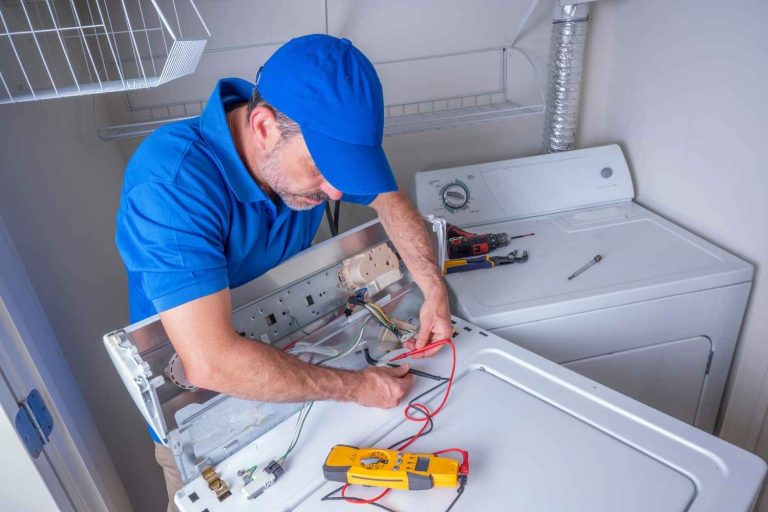Finding Reliable Roofing Pros: A Complete Homeowner’s Guid
Your roof isn’t just a layer of shingles or tiles — it’s the protective shield that keeps your home safe from wind, rain, heat, and snow. A well-installed roof can boost curb appeal, improve energy efficiency, and increase property value, while a poorly maintained one can lead to expensive repairs and structural damage.
Whether you’re dealing with a sudden leak or planning a complete replacement, knowing how to choose the right roofing service is key. This guide covers everything from identifying roofing issues to hiring the best contractor for the job.
1. Understanding Your Roofing Needs
1.1 Common Roofing Issues
Every roof faces wear and tear over time, but certain problems signal it’s time to call in a professional.
-
Leaks and Water Damage – Even a small leak can lead to mold growth, wood rot, and ceiling stains. Water often enters through damaged shingles, cracked flashing, or worn seals around chimneys and vents.
-
Storm Damage – Strong winds can tear shingles off entirely, hail can cause dents and cracks, and falling debris can puncture roofing materials. Some damage is obvious, but others—like loosened fasteners—require a trained eye to spot.
-
General Aging – Asphalt shingles, one of the most common materials, typically last 15–30 years. Metal roofs can last up to 50 years, while tile can exceed 70 years if maintained properly. If your roof is approaching its expected lifespan, proactive replacement can prevent sudden failures.
1.2 Residential vs. Commercial Roofing
Understanding the differences will help you choose a contractor with the right expertise.
-
Residential Roofing – These are typically steep-slope roofs designed to shed water quickly. Popular materials include asphalt shingles for affordability, wood shakes for rustic charm, and slate for high-end durability. Installation focuses on aesthetics as well as performance.
-
Commercial Roofing – Found on offices, warehouses, and retail buildings, commercial roofs are usually flat or low-sloped. They often use membrane systems like EPDM (rubber), TPO (thermoplastic), or built-up roofing. These require specialized installation and maintenance to handle ponding water and heavy equipment loads.
2. Why Professional Roofing Services Matter
Roofing is not a DIY-friendly job — mistakes can be dangerous and costly.
-
Expert Material Selection – A professional roofer can recommend materials best suited to your climate and budget. For example, in hurricane-prone areas, you might need high-wind-rated shingles, while in snowy regions, metal roofs may be better for snow-shedding.
-
Quality Workmanship – Proper installation ensures that the roof is watertight, properly ventilated, and able to withstand weather conditions for decades. Even high-quality materials will fail prematurely if installed incorrectly.
-
Warranty Protection – Many manufacturers only honor warranties if the roof is installed by certified contractors. This gives you peace of mind that repairs or replacements may be covered if issues arise.
3. What to Look for in Roofing Contractors
3.1 Licensing and Insurance
Your chosen roofer should hold all necessary state or local licenses and carry both liability insurance and workers’ compensation coverage. This protects you from legal and financial responsibility if accidents happen on your property.
3.2 Experience and References
Look for contractors with several years (ideally decades) of roofing experience. Ask for photos of past work and speak to previous clients. This will help you assess their consistency and ability to handle your specific type of roofing project.
3.3 Transparent Estimates
A trustworthy roofer will provide a detailed written estimate outlining material costs, labor charges, expected timelines, and cleanup responsibilities. This prevents surprise charges and ensures both parties agree on the scope before work begins.
4. Using Online Platforms to Compare Quotes
Rather than calling contractors one by one, platforms like Billy.com streamline the process. You can:
-
Compare Multiple Pros – View profiles of several local roofing contractors at once.
-
Check Ratings & Reviews – Read verified customer feedback to gauge reliability and quality.
-
Request Free Quotes – Submit your project details and receive multiple competitive bids without commitment.
This approach saves time and ensures you’re making an informed decision.
5. Tips for a Successful Roofing Project
-
Plan Ahead – Roofing projects are best done in dry, mild weather to avoid delays and material damage. Spring and early fall are often ideal.
-
Stay in Touch – Maintain regular communication with your roofer to track progress and address concerns quickly.
-
Inspect After Completion – Walk through the finished work with your contractor. Check for proper installation, clean seams, and debris removal from gutters and your yard.
Conclusion
Your roof protects your biggest investment — your home. By understanding common roofing problems, knowing what to look for in a contractor, and using trusted platforms to compare professionals, you can ensure your project is done right the first time. Investing in professional roofing services not only extends the life of your roof but also boosts your home’s value and safety.



